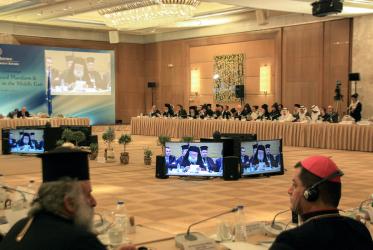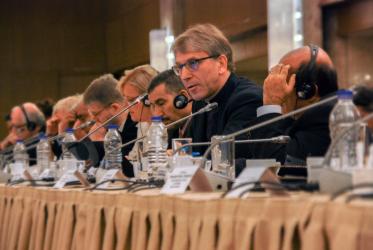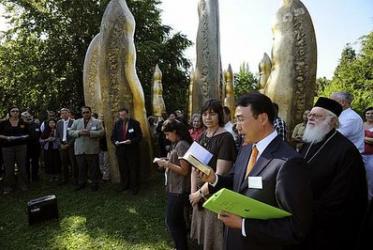Displaying 21 - 35 of 35
WCC Executive Committee works toward a future of peace and justice
19 November 2015
Common prayer in Geneva responds to acts of violence
16 November 2015
International conference addresses challenges in the Middle East
22 October 2015
Christians around the world pray for unity
22 January 2015
Churches to be more inclusive of persons with disabilities
16 October 2014
Condolences on the death of Tuikilakila Waqairatu
11 February 2014
Echos members stress meaningful engagement of youth in the churches
04 November 2011
Churches must be "salt of the earth"
31 August 2009









